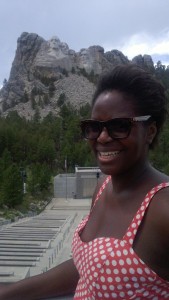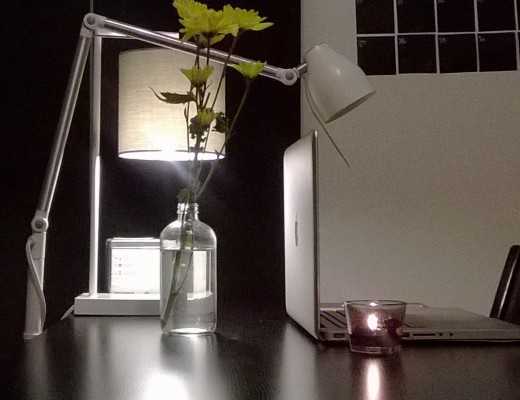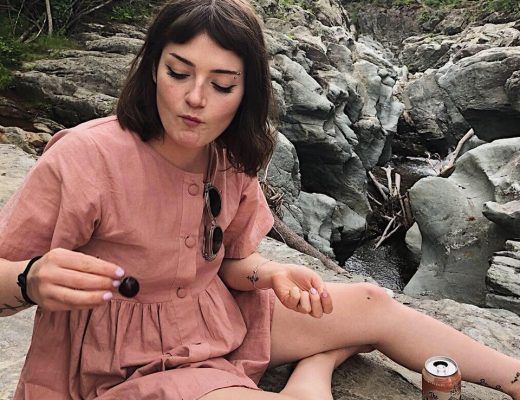 I didn’t acquire my driver’s license until the age of twenty-three when I absolutely had to. I went to graduate school in an itty, bitty village Southwest Michigan that had two stop lights, and the city girl inside me stomped her foot and demanded driving skills. A friend -who would become one of my most memorable romantic relationships- offered up his Honda Pilot for lessons, assuring me that he had great insurance and that he was a patient teacher. He taught me all about donuts and defensive driving and the one thing that terrified most new drivers: how to drive on the expressway.
I didn’t acquire my driver’s license until the age of twenty-three when I absolutely had to. I went to graduate school in an itty, bitty village Southwest Michigan that had two stop lights, and the city girl inside me stomped her foot and demanded driving skills. A friend -who would become one of my most memorable romantic relationships- offered up his Honda Pilot for lessons, assuring me that he had great insurance and that he was a patient teacher. He taught me all about donuts and defensive driving and the one thing that terrified most new drivers: how to drive on the expressway.
When I’d look over at the expressway as a passenger, moseying along a residential street, I couldn’t understand how the cars were driving so fast, and switching lanes at a moment’s notice. It didn’t help that I knew people who never drove on the expressway, opting to take a longer route rather than merge onto what they considered an accident waiting to happen. But I finally drove that Pilot onto the 31 South toward South Bend, and something happened; I found my lane, the fastest one, and I flew!
The expressways on the Michigan/Indiana border have a posted speed limit of 70 miles per hour, which means, of course, you can drive a little faster than that. I enjoyed driving, especially on the expressway, and secretly thought of those people who elected to remain on the slower roads as people who were afraid to live. I bought a ’92 Camry, and my freedom, and this skill would give me wings to move to Southern California three years later.
When I got to California, I purchased a PT Cruiser –my mechanic told me that the Camry wouldn’t make the trip, that she needed a new transmission. Quicksilver, the PT Cruiser, took me from my apartment in Orange to Los Angeles and Riverside and San Diego. I loved driving on the freeways, looking at the palm trees and mountains in my rear view mirror. I successfully fled the city of Chicago with it’s bloody history and my childhood memories of gang violence and poverty on the South Side; I lived down the street from Disneyland thanks to my education and driving skills. Then my family started getting sick. My aunt was diagnosed with cancer, and died, and another aunt’s health began a steady decline. While they ran tests on my aunt, her brother-my only uncle- his heart failed, and he died. A cousin was murdered, shot several times, only weeks after a teenager that I knew had been shot in a park on a rainy evening. The flights home were adding up. The emotional stress made it hard to do my job. I sat in front of my fireplace listening to the fireworks from Disneyland, and I knew that it was time to return to Chicago.
While minding her own business in the parking lot, Quicksilver got into an accident with a BMW and a Benz; a distracted driver crashed into her, and she crashed into the Benz. It totaled the body, but before I could feel hopeless, I realized that this accident would allow me to buy another car. Sasha, a 2013, tart-cherry red, Ford Focus came into my life, and she and I and the friend who taught me how to drive, who now wore the label of ex-boyfriend, set off on a road trip back to Chicago. Though it was exciting to drive up the PCH, I lugged material and emotional baggage, and I felt the weight. I was driving from the ‘Happiest Place on Earth’ to the ‘Murder Capital of the Country,’ with a person who had broken my heart. I sat on the passenger side looking out the window, saying goodbye to the mountains and trees and ocean and my serene life. Then I looked at the merge sign as my car twirled onto the highway, and I remembered something: that getting onto the highway is a choice, much like the decision to deal with life’s rough times. No one made me return to Chicago, I decided to go. I realized that it would be a great time to stop and mourn and perhaps switch careers. I’d always wanted to earn an MFA in Creative Writing, so I decided that while I spent time with family, and sat around sorting through my feelings, that it could be a great time to write.
We drove up the coast, stopping at random spots to see things like the Peanuts museum in Santa Rosa, Portland, and its world of green, the Tetons, and Mount Rushmore, reflecting on our lives and our failed relationship and our future -without one another. We jumped on and off the freeways and expressways and merged and switched lanes, and I thought about how life would be this way, that there are seasons when I’ll have to decide where to be. The comedian Kevin Hart once joked about this in one of his stand-up routines. ‘You gotta stay in your lane,’ he joked, then he gave an example of what he meant. Mekhi Phifer invited him and his daughter to Disneyland, where Mekhi Phifer and his son were going for a birthday celebration. When Kevin arrived, he noticed that they were the only people there; the actor bought out the entire theme park for the day. Kevin said, “Uh, you got this, right? I ain’t gonna be able to help out. You gotta stay in your lane,” he warned the audience.
While we switched lanes, avoiding big trucks that couldn’t move too fast or enjoyed the comforts of the Car Pool lane, I thought about expressway driving as a metaphor for life. First, you have to decide to get onto the expressway, to live life intentionally, paying attention to what’s happening, watching your speed. Then you have to choose the right lane. This is tough. It requires honesty with yourself. Sometimes we think we can handle the fast lane, but we don’t belong there. Other times we wish we were exiting, but we haven’t actually arrived. The drive back home gave me time to think about what the next few years could be, but understanding that just like losing loved ones to illness and violence, life is full of change that I cannot control.
It’s been two years since my return to Chicago, and after dealing with the loss of both of my mom’s sisters, her brother, and a lovely girl I once knew, after completing a novel, an MFA and finally healing my heart, I think I’m still merging, switching lanes, and constantly assessing where I ought to be.
Latoya Wolfe, Assistant Editor


